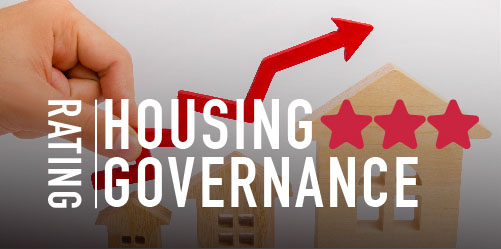A Chief Sustainability Officer (CSO) is the executive responsible for environmental, social and governance concerns. As sustainability becomes an increasingly central aspect of business, the number of CSOs has risen. Shareholders and stakeholders alike expect companies to show they are taking action to ensure the company’s long-term viability.
What is the Purpose of a CSO?
There is no legal requirement to have a CSO and many companies choose to go without one. However, this role can play a crucial role in future planning. In the 21st century, companies are expected to play an active role in responding to sustainability challenges. Edelman’s 2021 Trust Barometer showed that 86% of people expect CEOs to lead the way on societal issues.
One crucial responsibility of a CSO is addressing environmental issues. The recent IPCC report has shown how the climate crisis will impact business in the next 20 years. ESG is not only a moral question but also a practical one.
The impact on infrastructure, supply chains, services and markets is already transforming the economy. Businesses must take steps to account for this change.
Beyond the environment, ESG impacts other areas of a business that the CSO must consider. Their programme should account for local social policies, governance structures and the wider community.
The pandemic is a clear example of how ESG is more than just the environment. In reaction to the virus, many companies have made ‘socially responsible’ decisions such as limiting employee exposure and implementing safe processes. The CSO may play a role in this type of planning.
There is no way for the CSO to deal with every single social, environmental and governance concern the company faces. Instead, they must prioritise which issues are of particular importance to the organisation. Their evaluation may be based on internal values, projected impact or the feasibility of taking practical measures.
What is the Role of the CSO?
As the position of the CSO is new, its nature is still evolving. Companies are testing what works best for them in tackling sustainability issues and there is no single ‘correct’ role for a CSO. Different managers will take different approaches and their responsibilities will vary depending on the company.
Since the first CSO was appointed in 2004, the role has already changed. At first, the emphasis of the role was on public relations. The CSO was often a marketing professional appointed to improve the company’s image when it comes to the environment. They did not have much strategic influence beyond improving the company’s reputation.
Nowadays, the position generally includes a greater degree of decision-making power. Although the CEO is still the top executive, many CSOs no longer report to them directly. They must liaise with different groups to assess the company policies.
A CSO may be actively involved in conducting policy reviews with the legal team. Alternatively, they make work to assess material leakage or net emissions. They should monitor Key Performance Indicators which show how the company can save resources. Some may even implement advisory projects to assist governments in shaping international policy in a way that benefits the company.
The CSO is also responsible for establishing a strong company culture when it comes to sustainability. Environmentally and socially conscious actions should be built into the heart of the organisation. An active CSO will inspire their team to ensure sustainability ‘by design’ - whether this is in the adoption of new processes or products.
What Makes a Good CSO?
Although the role of the CSO is moving away from the emphasis on public relations, it is still important for a good CSO to value communication. Business is collaborative and they cannot change the world alone. They should work as part of a team and make sure everyone is fully aware of their role.
As with many top roles in business, the CSO must be a strong strategist. Their role is about the future of the company so they must make decisions that will work in the long term. It is important that they understand key issues the company faces and predict future trends. This can include prioritising which issues are most important to the organisation.
The scale of this role means they must be an expert in delegation. Although the CSO takes the credit and responsibility, any success is a combined effort. Many novice executives attempt to ‘do it all’ by themselves, but this only shows inexperience. The CSO must coordinate different teams so sustainability is sewn into the fabric of the organisation.
How Can Convene Support Your Organisation in Setting Sustainability Policies?
To be a good leader, a CSO has to share their ideas with the whole team. They need to make sure everyone is on the same page when it comes to ESG. Promoting an effective sustainability policy is a serious long-term commitment that requires efficient communication.
A Board portal like Convene can improve collaboration within your company. Whatever industry you work in, our all-in-one meeting management software is designed to help managers deliver effective ESG policies.
From creating an agenda to establishing a strong admin trail, every step of the process should be as smooth as possible. With the right software, the complex task of sustainability planning can be much easier!Read our customer success stories or book a demo.








